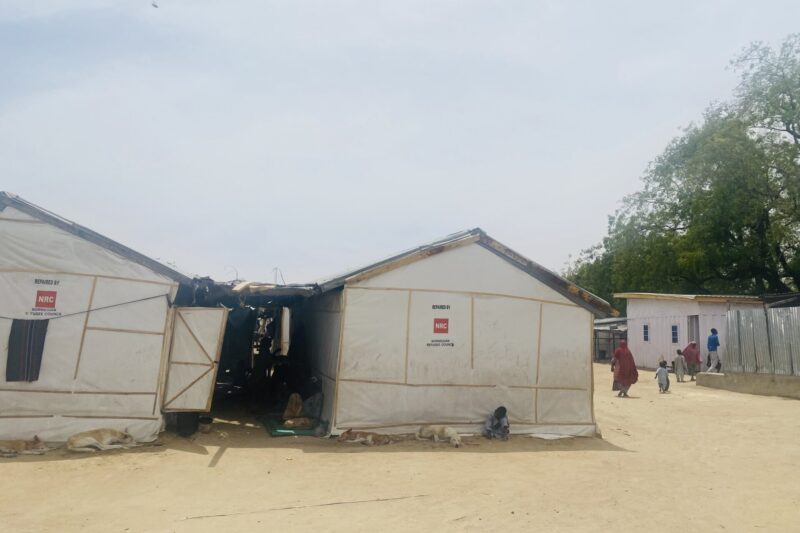Slowly but surely women and girls in Borno State are beginning to believe they are survivors and not victims of sexual gender-based violence.
Not so long ago, women and girls went into hiding if they were raped or sexually abused because they felt ashamed, stigmatised and they did not want to tarnish their families’ reputation.
They did not realise that by not reporting these cases, they were giving perpetrators free rein to continue their abuse.
But thankfully, more women and girls are reporting sexual abuse as well as other forms of gender-based violence.
Aisha Kolo Lawan, the United Nations Children’s Fund (UNICEF) child protection specialist in Maiduguri, said too few women and girls reported cases of sexual and gender-based violence (SGBV), but the numbers were “gradually increasing”.
Humanitarian non-governmental organisations – both local and international – have over the years held awareness programmes, which had informed girls and women of their basic human rights and, in so doing, had given them the courage to report cases of abuse.
Now more parents or guardians and community leaders – although not enough yet – were standing up for the victims and did not let fear or shame stop them from reporting SGBV to law enforcement agencies and human rights organisations.
Now they wanted justice for the victims whom they preferred to call survivors.
Humanitarian NGOs had always given rapid support to vulnerable people and had done so since the early years of the 14-year conflict.
Because of this, they had earned the trust of people who felt confident enough to confide in them.
By the time international non-governmental organisations (iNGOs) were told to leave Kawar Maila community camp in Maiduguri, humanitarian aid workers had imparted their knowledge to the caretakers and inhabitants, especially in the fields of legal rights and healthcare.
Bukar Alhaji Bukar, the camp’s secretary, told RNI that there was “no doubt” that more women and girls were reporting cases of SGBV.
He said the iNGOs had made people more aware of their rights and, by doing so, more women and girls were confident and now believed it was important to report perpetrators, if only to stop them in their tracks.
“Before the intervention of humanitarian agencies, most women and girls did not report such cases because they believed it was taboo. Instead, they hid what had happened to them and didn’t want anyone to know about it.”
Bukar said he did not blame the survivors for not reporting SGBV cases because, at the time, they did not get the justice they deserved; they also did not receive the medical and psychosocial support they needed.
“With the emergence of the iNGOs that began to change. Humanitarian workers made them more aware of their rights and told them not to be ashamed. They said if anyone needed to be stigmatised it was the men who perpetrated these acts. This message was extremely empowering for women and girls.
“Now they are more likely to report cases to camp officials and social workers. This happens not only here but also in host communities, such as in Bayan Quarters and Goni Damgari.”
Bukar said the iNGOs had helped parents to understand the importance of reporting all cases of abuse.
“Since the iNGOs left, we have taken on the responsibility of supporting and standing by people who are abused until justice is served. People trust us now with their problems; they might be a little shy at first, but they report their problems to us. We have found in the camp that there have been fewer rapes compared with previous years. And, if a girl or woman is raped, they are aware of their rights and are more likely to report it to the police. We also ensure that they are taken to hospital.”
Hauwa Malam, an elderly woman who lives in the camp, told RNI that parents and guardians needed to safeguard their children from all kinds of harassment, adding that it was a “huge responsibility”.
“We need to know where our children are and who they are with at all times, especially younger kids.
“In the past, we were so ashamed that we did not even tell our neighbours about what had happened to our children. We were afraid that the victim would be stigmatised and would not be able to get married later if people knew about it. But that’s not the case today.
“Now we are very much aware of the importance of reporting abuse to the police and of taking the victim to hospital. Some people still regard abuse as something that belittles you. I tell them that they have to stand up for themselves. There have been so many changes. Now at least we know that, by keeping quiet about abuse, we are protecting perpetrators and that means the problem will never stop.”
UNICEF’s Aisha Kolo Lawan said people were more open about what had happened to them now thanks to the consolidated efforts of all involved, such as human rights activists and humanitarian workers.
“But there is a need to do whatever is possible to maintain the successes recorded. It’s true that the narratives are gradually changing and the number of people reporting SGBVs is gradually increasing but there is still more that needs to be done. Considering the vast number of abuses perpetrated against women, the reported cases are still too few. The fact that some humanitarian iNGOs are winding up activities in the region is even more reason to up the ante and keep informing women and girls of their rights.”
She said this was a battle that should be continued until every abused person knew their rights, reported cases to the authorities and got the justice they deserved. Perpetrators needed to be punished for their vile crimes.
FALMATA MOHAMMED ALI








